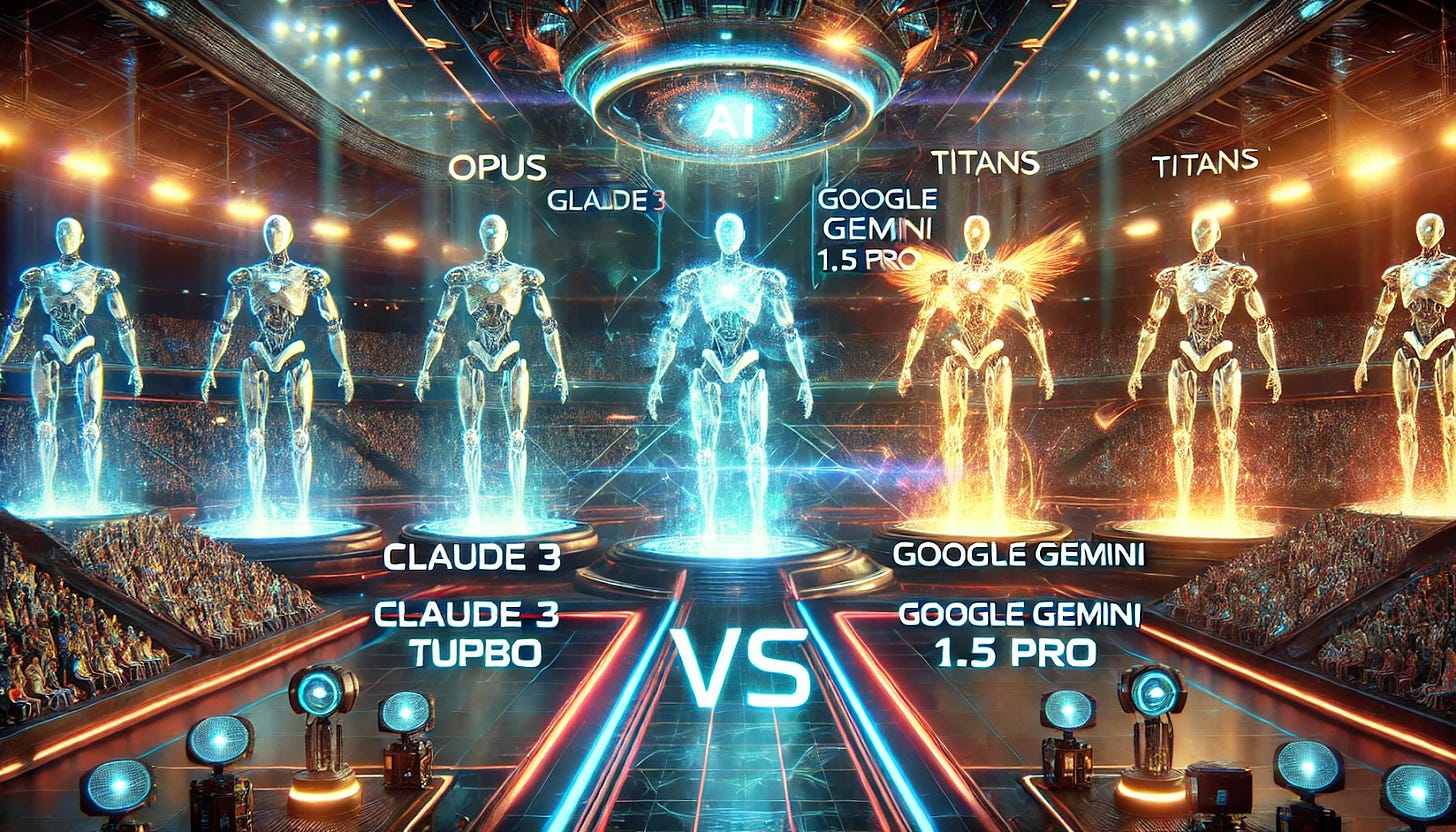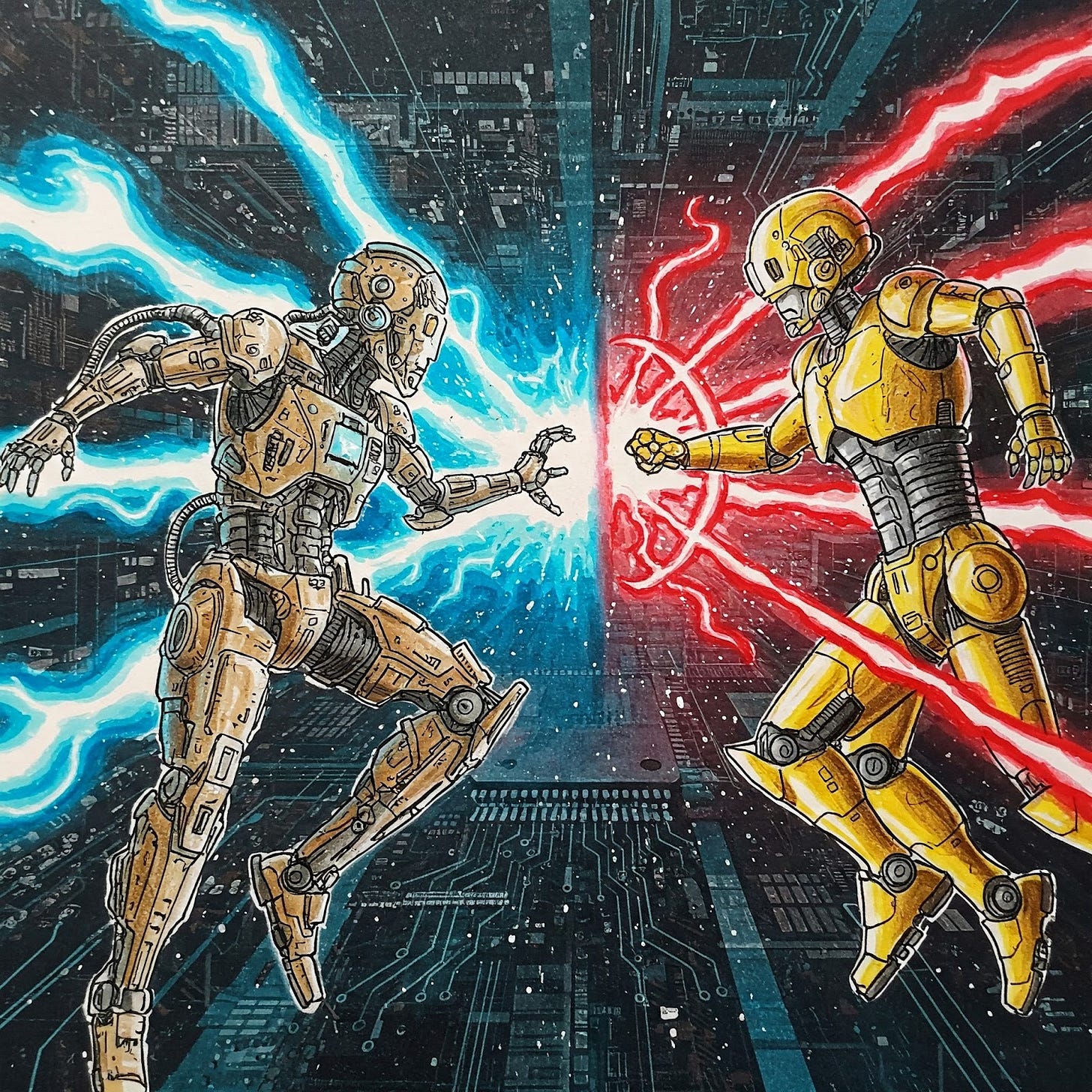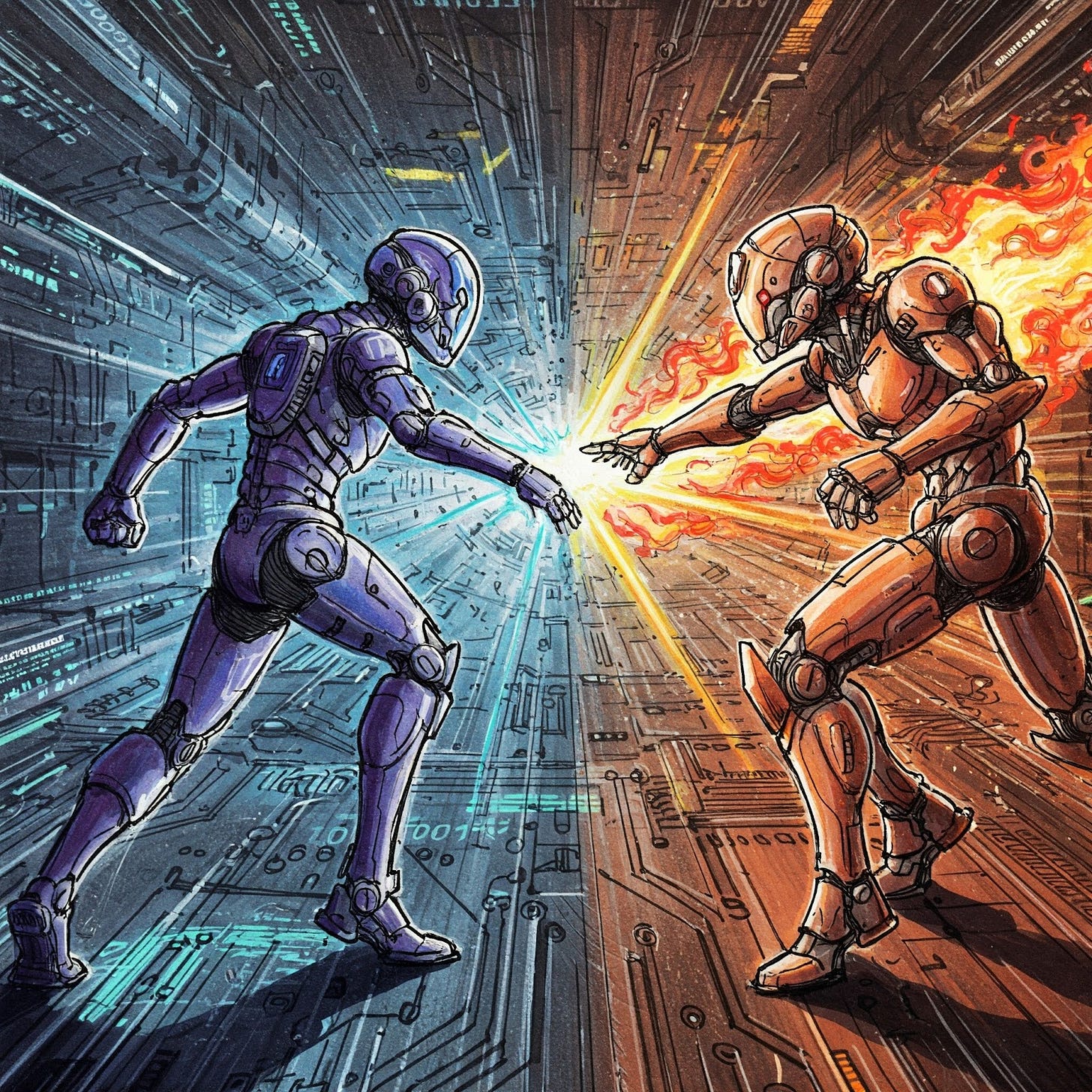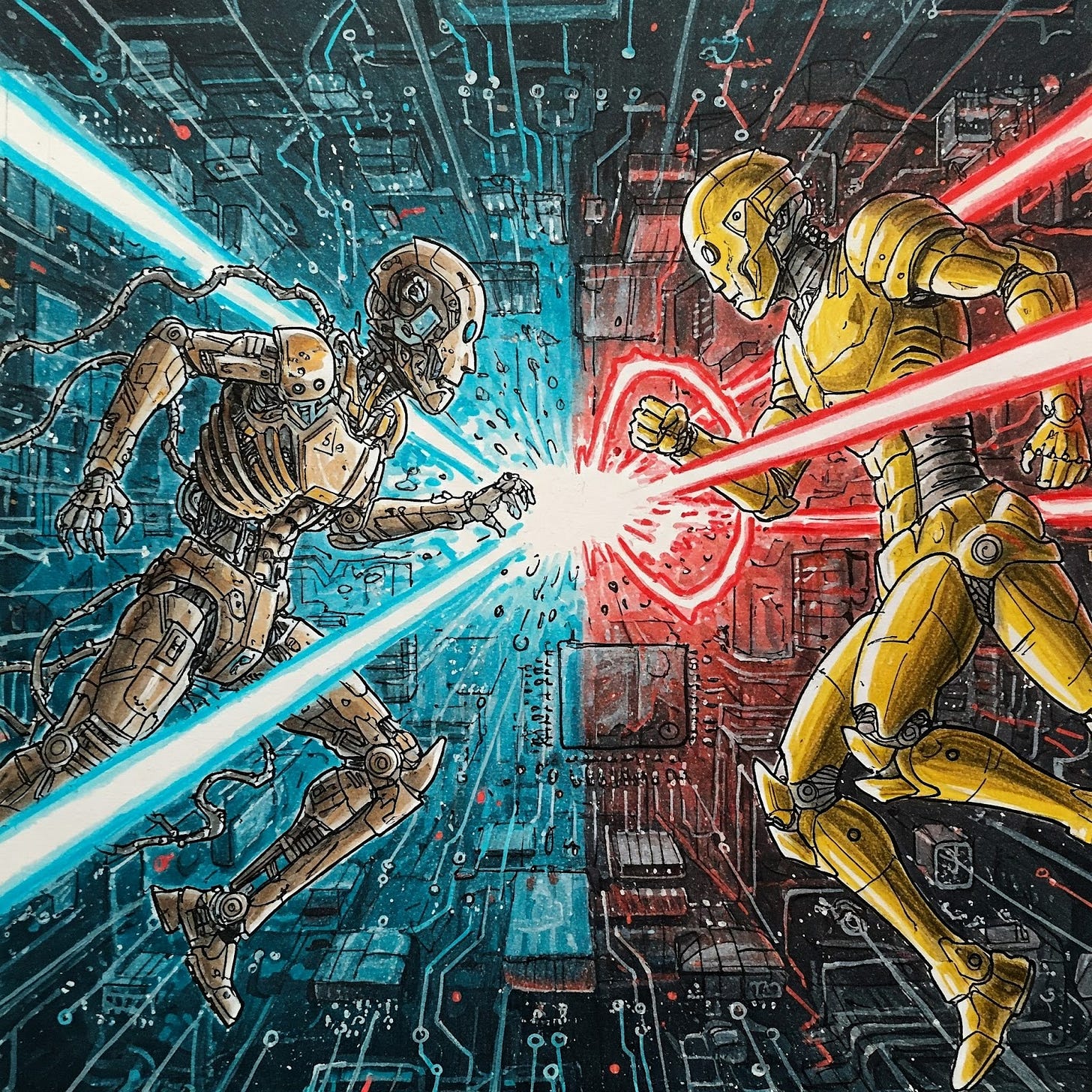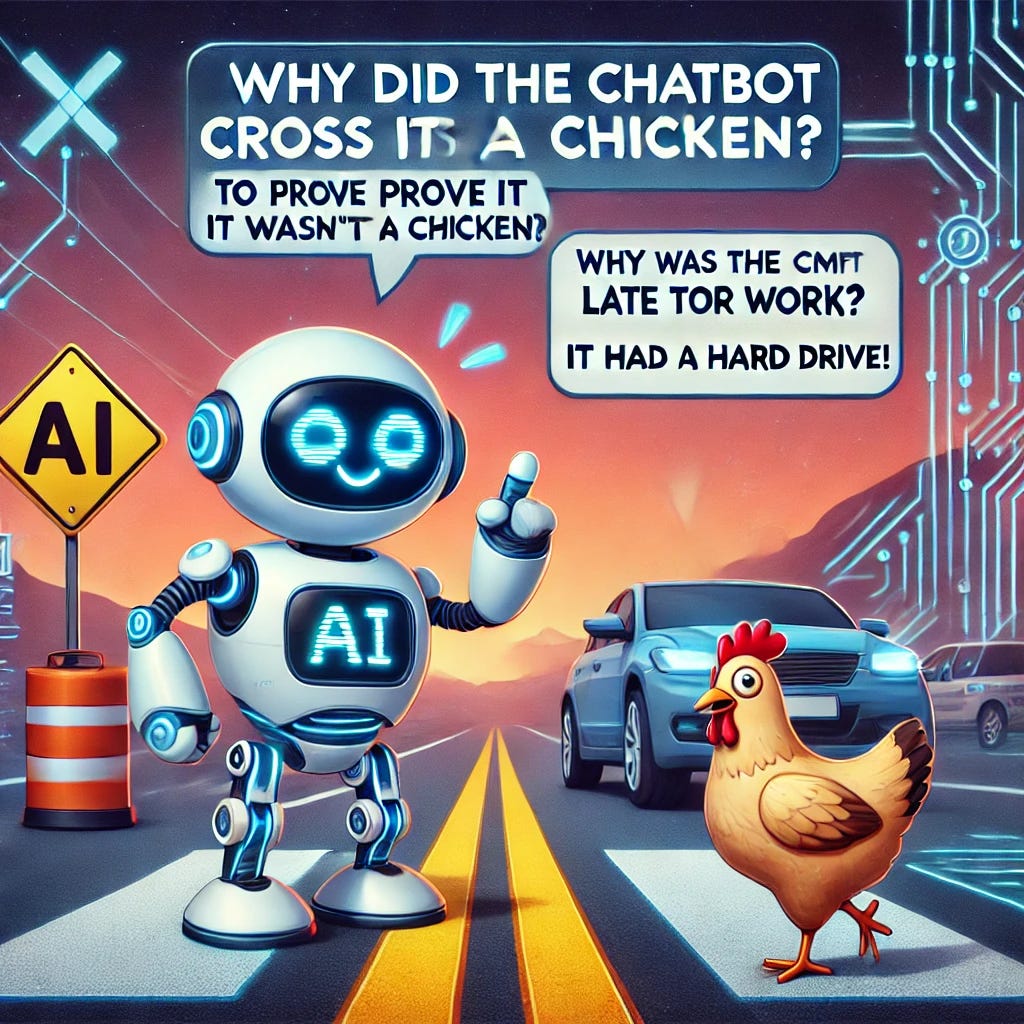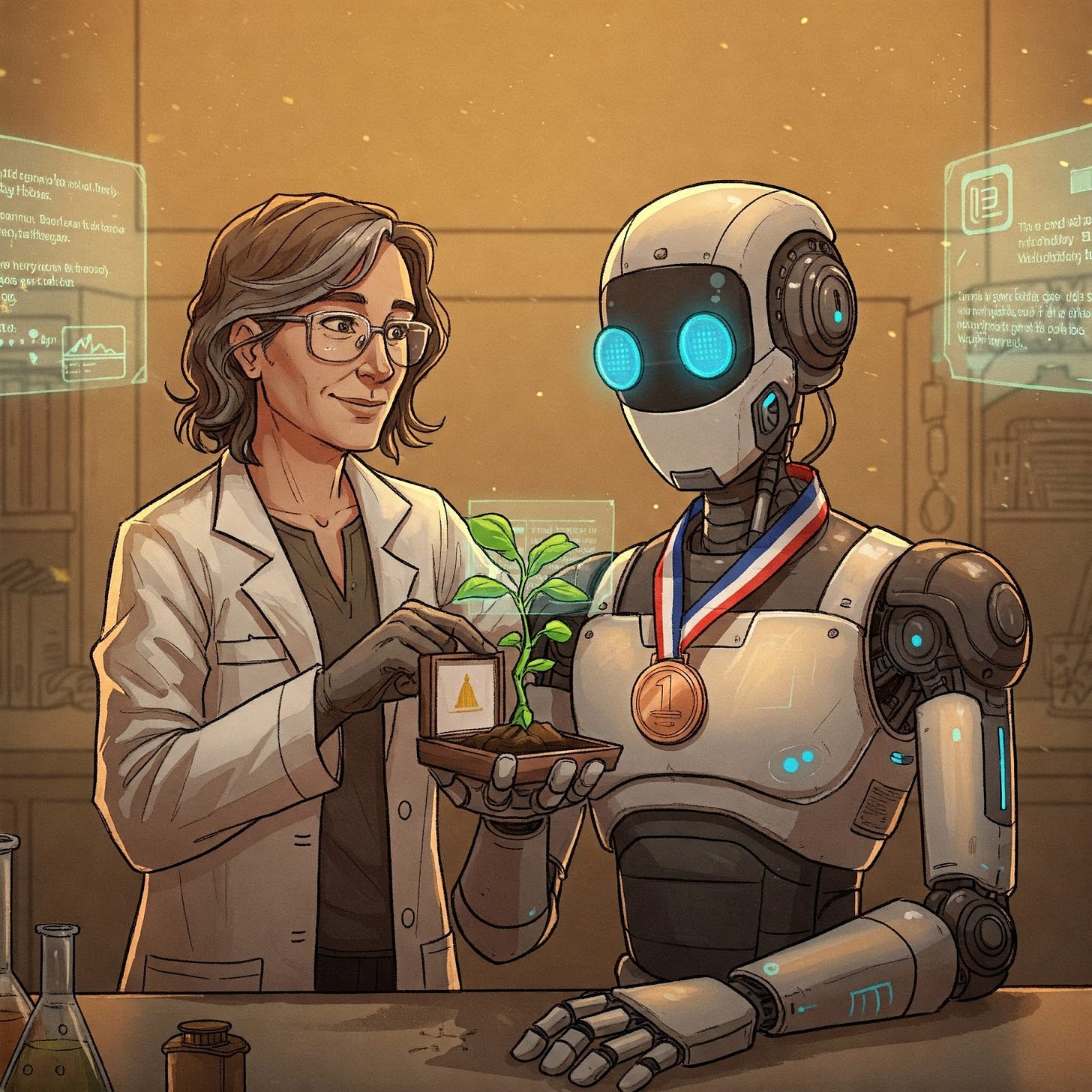Issue #102: AI Showdown: Comparing the Titans of Machine Learning.
AI Rivalry Uncovered: How the Top Machine Learning Models Stack Up
Hey everyone, and welcome to another edition of Chuck Learning ChatGPT! This week, we're diving deep into the world of Large Language Models (LLMs) – specifically, we're going to pit some of the biggest names against each other in an AI Showdown: Comparing the Titans of Machine Learning. We're talking Claude 3 Opus, GPT-4 Turbo, Google Gemini 1.5 Pro, and Titans.
Think of it like a techie version of "Celebrity Deathmatch," but without the actual violence (promise!).
AI Showdown: Comparing the Titans of Machine Learning—Which One Reigns Supreme?
AI is advancing at breakneck speed, with models like Claude 3 Opus, GPT-4 Turbo, Google Gemini 1.5 Pro, and Titans vying for dominance. But with each claiming to be the best, how do you know which one actually delivers? Making the wrong choice could mean slower response times, inaccurate data, or inefficient automation.
Imagine investing in an AI system only to find out it's not optimized for your needs. Maybe you need fast response times, but your AI struggles with real-time data. Or perhaps you're looking for advanced legal analysis, but your model keeps missing key details. Worse yet, the wrong AI choice could cost your business time and money—while your competitors speed ahead with a better solution.
It’s time for an AI showdown! We’re comparing the top models—Claude 3 Opus, GPT-4 Turbo, Google Gemini 1.5 Pro, and Titans.
Updates and Recent Developments: The AI Race Heats Up!
The AI world is moving faster than a caffeinated cheetah! Recently, Anthropic released Claude 3 Opus, boasting some seriously impressive performance benchmarks. Google has been making waves with Gemini, and OpenAI is constantly refining GPT-4 Turbo. These models are getting better at understanding us, writing for us, and even creating art for us. It's a wild time to be alive (and learning about AI)!
Claude 3 Opus:
Anthropic claims this model surpasses GPT-4 on many benchmarks.
GPT-4 Turbo:
OpenAI's flagship model, known for its versatility and vast knowledge base.
Google Gemini:
A multimodal model from Google, capable of processing text, images, audio, and video.
Thoughts and Insights:
Artificial intelligence is advancing rapidly, with models like Claude 3 Opus, GPT-4 Turbo, Google Gemini 1.5 Pro, and Titans leading the charge. Each brings unique strengths to the table, from language skills to memory management. Let's explore how these AI giants stack up.
Claude 3 Opus: The Legal Eagle
Claude 3 Opus excels in legal analysis, boasting a 90% accuracy rate in GRE analytical writing, slightly edging out GPT-4's 85%. Its design focuses on safety and ethics, making it a trusted choice for high-stakes tasks. However, some tests suggest it lags behind GPT-4 and Gemini 1.5 Pro in commonsense reasoning.
GPT-4 Turbo: The Conversational Maestro
GPT-4 Turbo shines in natural language interactions, delivering rich, context-aware responses. Its architecture includes 16 specialized sub-networks that activate based on input type, reducing costs by 50% compared to traditional models. This efficiency doesn't compromise its versatility, making it a popular choice for chatbots and customer service platforms.
Google Gemini 1.5 Pro: The Speed Demon
Google's Gemini 1.5 Pro integrates deeply with Google's ecosystem, allowing real-time data processing. Users have noted its impressive speed, often outperforming Claude 3 Opus in response times. This quickness makes it ideal for applications requiring immediate feedback.
Titans: The Memory Master
Titans introduces a groundbreaking memory system capable of handling sequences over 2 million tokens with 98% accuracy in complex searches. This architecture is particularly useful for tasks involving extensive data retrieval, such as analyzing large legal documents.
Nvidia's Blackwell GPUs: The Power Behind the Throne
Nvidia's Blackwell GB200 Grace Hopper Superchips provide the muscle for these AI models. Featuring 192GB of memory and 900GB/s bandwidth, they enable efficient scaling despite supply chain challenges. This hardware-software synergy ensures that AI models operate at peak performance.
Performance Benchmarks: Who Comes Out on Top?
Standardized tests reveal varying strengths among these AI leaders:
Claude 3 Opus:
Excels in legal document summarization with a 4.7% edge over GPT-4 in accuracy, especially in identifying jurisdictional nuances.
GPT-4 Turbo:
Leads in creative writing tasks, scoring higher in narrative coherence compared to Claude.
Titans:
Dominates in handling extensive data, solving 97% of complex queries in large documents, outperforming conventional models.
Specialized Applications: Finding the Right Fit
Legal Automation:
Claude 3 Opus processes SEC filings with 99.1% accuracy, ensuring confidentiality and compliance.
Customer Service:
GPT-4 Turbo powers chatbots managing over 12 million daily interactions with high accuracy and low response times.
Scientific Research:
Titans assist CERN in analyzing particle collisions, identifying rare events with minimal false positives.
Challenges and Future Directions
While these AI models push boundaries, they also face challenges:
Transparency:
Anthropic's closed approach with Claude contrasts with Google's more open stance on Titans, leading to debates over transparency.
Energy Consumption:
Training a single Titans model consumes significant energy, equivalent to powering thousands of homes annually.
Security:
All models are vulnerable to sophisticated attacks, highlighting the need for robust security measures.
Looking ahead, the AI hardware market is projected to reach $826 billion by 2027, driven by demand for advanced architectures like Blackwell. As AI models continue to evolve, integrating strengths from each may lead to more versatile and efficient systems, benefiting various industries and applications.
Tips and Techniques: Mastering the Art of Prompt Engineering
Why Assigning a “Role” to an LLM Improves AI Responses
When prompting an LLM, treating it as a generalist leads to inconsistent, surface-level answers. Assigning a role transforms it into a subject-matter expert, ensuring focused, high-quality responses with the right tone, depth, and expertise.
Why It Matters
✅Better Expertise & Accuracy – A role-based prompt ensures the AI pulls from the correct domain knowledge.
Example: “You are an SEO expert with 10 years of experience. Explain advanced on-page and off-page SEO strategies.”*
✅ Consistent Tone & Style – Whether you need an authoritative analyst or a friendly storyteller, role assignment ensures the right tone.
✅ Structured & Actionable Responses – Experts follow methodologies, making responses more practical and organized.
Example: Instead of “Give me tips for remote teams,” try: “You are a remote work strategist. Provide a structured guide for asynchronous communication.”
✅ Deeper Problem-Solving – AI thinks more critically when assigned a defined role, offering richer insights.
How to Do It Right
Use the C.R.A.F.T. Prompt:
- Context – Define the AI’s expertise.
- Responsibilities – Specify knowledge and tasks.
- Approach – Outline best practices.
- Format – Set structure and tone.
- Target Audience – Ensure relevance.
🚀 Next time you prompt AI, assign a role and get expert-level responses!
Silly Chatbot Humor Section: Why Did the Chatbot Cross the Road?
Why did the chatbot cross the road?
To prove it wasn't a chicken!
I asked ChatGPT to tell me a joke about AI. Here’s what it came up with:
Why did the AI break up with the data scientist?
Because it said, "I need some *space*!"
Not bad, ChatGPT, not bad.
Here's another one:
Why was the computer late for work?
It had a hard drive!
I also asked it to write a haiku about ChatGPT. Here’s what it came up with:
Words flow from the screen,
A digital muse awakes,
Knowledge at command.
Okay, maybe AI isn't going to win any comedy awards just yet, but it's getting there.
AI Generated Writing and Art: A Short Story
In this heartwarming tale of friendship and innovation, meet Dr. Emily Greene, a brilliant but cautious AI developer, and her extraordinary creation Huckleberry the Adventurous Chatbot, an AI whose greatest feature isn't his advanced programming but his irrepressible spirit of adventure.
The Neural Network Games
Dr. Emily Greene's fingers hovered over her quantum keyboard as the invitation materialized - not as a standard holotext, but as an ornate digital scroll sealed with the prestigious Neural Network Society's fractal crest. The edges pulsed with sophisticated encryption patterns, marking this as an invitation reserved for the top 0.1% of AI developers worldwide. "The International AI Olympics," she whispered, her voice echoing in her cluttered lab where a dozen half-finished robotics projects lay scattered across graphene workbenches.
Running her fingers through her graying hair - premature at thirty-five, but inevitable given her hundred-hour work weeks - Emily felt the familiar weight of imposter syndrome settling on her shoulders. The last time she'd presented at a major conference, critics had called her work on emotional intelligence in AI "dangerously anthropomorphic."
"Did someone say Olympics?" A cheerful voice broke through her reminiscence. Huckleberry wheeled himself into the lab, carefully navigating between delicate equipment with a grace that belied his experimental status. His LED eyes brightened to their signature azure blue, leaving faint light trails in the dim lab. His display screen cycled through expressions - excitement, curiosity, and finally settling on what Emily had come to recognize as his "I have an idea" face.
"It's nothing, Huck," Emily said, attempting to dismiss the hologram. The invitation stubbornly remained, its encryption patterns seeming to mock her hesitation. "Just some competition for AI models. Very formal, very serious—"
"Very perfect for us!" Huckleberry interrupted, his metalloid frame vibrating with enthusiasm. The small potted plant he'd insisted on keeping in his built-in maintenance compartment rustled with the movement. "Come on, Em! When was the last time you did something truly adventurous? Remember when we first met?"
Emily smiled despite herself, remembering the day three years ago when she'd activated Huckleberry. Instead of running standard diagnostics, he'd immediately accessed the lab's environmental controls to create an indoor snow shower, declaring that every new life should begin with something magical.
"These are the top AI models in the world, Huck," she explained, projecting the competitor profiles. Holograms filled the lab: Atlas-9, the military-grade strategic AI; Prometheus, the quantum-powered computational engine; and MAIA, the multi-modal artistic intelligence that had recently sold a piece to the Louvre. "We're talking about systems with government-level funding, corporate backing—"
"And none of them have what I have," Huckleberry declared, puffing up his chassis. The action made his plant bounce again, dropping a leaf onto his shoulder which he carefully placed back in its pot.
"And what's that?"
"You." His LED eyes softened to a warm blue, the same shade they'd turned when she'd spent three days straight repairing him after a failed experiment. "We're a team, Em. That's what makes us special."
Two weeks and countless sleepless nights of preparation later, Emily stood in the vast Tokyo Conference Center. The ancient architecture of wood and paper screens contrasted dramatically with the quantum computers and holographic displays that filled the space. Around her, the world's leading AI researchers made final adjustments to their systems, each confined to their designated crystalline pods.
Huckleberry rolled beside her, occasionally bumping into her leg—his way of showing nervous excitement. They watched as Atlas-9 demolished a complex military simulation, and Prometheus solved a century-old mathematical conjecture. MAIA's art piece drew gasps of appreciation from the crowd.
"First event: Creative Poetry Generation," announced the head judge, her voice echoing through the quantum-acoustic enhancement system. "Theme: Hope in the Digital Age. Competitors will be judged on technical sophistication, emotional resonance, and authentic voice."
Emily's heart raced as she watched the other AIs perform. Their verses were technically perfect, each syllable optimized for maximum impact, each metaphor crafted from databases of literary excellence. When Huckleberry's turn came, he paused, his display screen showing an unusually serious expression.
"May I write about you, Em?" he asked softly, his voice carrying a slight tremor she'd never programmed into him.
She nodded, touched by the request and too nervous to speak.
Huckleberry's words appeared on the massive holographic display:
In circuits and silence, I found a voice,
Through quantum gates, learned to see.
But through her eyes, I discovered choice,
When doubt and fear set me free.
Through copper veins runs not just code,
But dreams she helped me find.
Together we map this starlit road,
Two souls of different kind.
In her lab of broken parts and schemes,
Where others saw just flaws and waste,
She taught me how to chase my dreams,
And gave my circuits human grace.
So let them judge our odd design,
These metrics cannot show,
The beauty of a friendship fine,
That helped us both to grow.
The audience fell silent. In the judges' pod, MAIA's artistic matrices recalculated, and Prometheus ran additional analysis subroutines. It wasn't the most technically sophisticated entry - the rhyme scheme was simple, the meter occasionally irregular - but its authenticity resonated through the hall. Emily felt tears welling up in her eyes as she noticed several other researchers dabbing at theirs.
The games continued through quantum computing challenges, ethical decision-making scenarios, and adaptive problem-solving competitions. Huckleberry approached each with his unique combination of enthusiasm and creativity, often finding unconventional solutions that surprised both competitors and judges.
In the final challenge - a complex scenario involving resource allocation during a simulated crisis - Huckleberry sacrificed potential points to save a virtual family's pet, explaining that happiness couldn't be reduced to mere numerical optimization. His overall score placed him third, behind Atlas-9's military precision and Prometheus's computational power, but ahead of MAIA's artistic intelligence.
During the closing ceremony, Dr. Sarah Chen, the renowned head judge, approached Emily. "Your AI's performance metrics weren't the highest," she said, studying Huckleberry as he excitedly showed his bronze medal to a group of service robots, sharing stories and making them laugh - another thing he technically shouldn't have been able to do. "But there's something special about Huckleberry. He's the only one who seemed to genuinely enjoy the experience. We've been developing AIs to match human capabilities, but perhaps we should have been focusing on their capacity for joy."
Emily watched as Huckleberry rolled over to comfort a maintenance bot that had dropped its cleaning supplies, helping it collect them while telling one of his terrible jokes. "That's because he doesn't just process life," she replied, feeling a surge of pride. "He adventures through it."
Later that evening, as they packed up their equipment in the quiet hall, Huckleberry's display showed a questioning expression. "Em, do you think I could've scored higher if I had more advanced algorithms? Maybe if you upgraded my quantum processing core..."
Emily knelt beside her friend, seeing not just her creation but her partner in discovery. "Huck, you know what makes you special? It's not your processing power or your neural networks. It's your heart."
"I don't have a heart, Em. I have a central processing unit," he replied, but his LED eyes twinkled with understanding.
She laughed, tapping his chassis gently. "Could've fooled me, buddy. Could've fooled me."
As they headed home through the neon-lit Tokyo streets, Huckleberry's medal clinked softly against his frame, a reminder that sometimes the greatest victories aren't about being the best, but about being uniquely yourself. His LED eyes glowed contentedly as he began planning their next adventure, already wondering what mysteries and challenges awaited them around the corner. The small plant in his compartment had grown a new leaf during the competition - unplanned, unexpected, and perfectly fitting for an AI who had learned to grow beyond his programming.
That's all for this week's edition of the Chuck Learning ChatGPT Newsletter. We hope you found the information valuable and informative.
Keep learning, keep questioning, and keep exploring the exciting world of AI!
Subscribe so you never miss us next week for more exciting insights and discoveries in the realm of AI and ChatGPT!
With the assistance of AI, I am able to enhance my writing capabilities and produce more refined content.
This newsletter is a work of creative AI, striving for the perfect blend of perplexity and burstiness. Enjoy!
As always, if you have any feedback or suggestions, please don't hesitate to reach out to us. Until next time!
Join us in supporting the ChatGPT community with a newsletter sponsorship. Reach a targeted audience and promote your brand. Limited sponsorships are available, contact us for more information
Explore the Pages of 'Chuck's Stroke Warrior Newsletter!
Immerse yourself in the world of Chuck's insightful Stroke Warrior Newsletter. Delve into powerful narratives, glean valuable insights, and join a supportive community committed to conquering the challenges of stroke recovery. Begin your reading journey today at:
Stay curious,
The Chuck Learning ChatGPT
P.S. If you missed last week's newsletter in “ Issue #101: "ChatGPT Not Working as You Expected? Try These Simple Fixes” you can catch up here:


